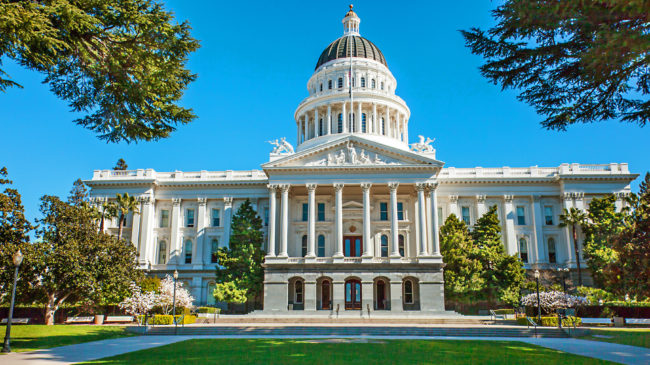American Society of Journalists, et al., Plaintiff-Appellants,
v.
Xavier Becerra, Defendant-appellee.
On Appeal From the United States District Court for the Central District of California, No. 2:19-cv-10645-psg-ks (Hon. Philip S. Gutierrez)
Brief of the Cato Institute, Reason Foundation, and Individual Rights Foundation as Amici Curiae In Support of Plaintiff-Appellants
Summary of Argument
“Congress shall make no law . . . abridging the freedom of speech, or of the press.” U.S. Const. amend. I. The same prohibition applies to state legislatures through the Fourteenth Amendment. See, e.g., Stromberg v. California, 283 U.S. 359, 368 (1931). Laws that “target speech based on its communicative content,” are “[c]ontent-based” and are “presumptively unconstitutional and may be justified only if the government proves that they are narrowly tailored to serve compelling state interests.” Reed v. Town of Gilbert, 135 S. Ct. 2218, 2226 (2015). In other words, content-based laws are “subject to strict scrutiny.” Id. at 2227.
California’s AB 5 places tight restrictions on the ability of freelance journalists to make a living by subjecting them to limits on the number of submissions they may make to an individual publisher in a given year and, in the case of photojournalists, prohibiting them from making video submissions. The only alternative to these restrictions is to become a full employee of their client publishers. Even if publishers were willing to hire every freelance journalist and photojournalist in the state of California, many prefer freelance work for a variety of reasons, such as the freedom to set their own hours and pursue work that interests them. The restrictions applied to freelance journalism are unique: other categories of constitutionally protected speech, such as “original and creative” marketing, fine art, and graphic design are subject to neither the submission limit nor the video ban. This distinction is not only arbitrary and harmful. It is unconstitutional.
The distinction between journalism, marketing, fine art, and graphic design is entirely dependent on the content of the speech at issue. Under AB 5 as it currently stands, it would be legal for a freelancer to sell 36 images categorized as “graphic design” to a newspaper but illegal for her to sell 36 images of “photojournalism” to the same paper. The only difference? The content of the images themselves. The law is clear: such content-based restrictions are presumptively unconstitutional and must pass strict scrutiny to survive. But California wants to evade strict scrutiny by using the complexity of AB 5 to its advantage, obfuscating the way the law works in an attempt to change a content-based restriction into a content-neutral one. Without explanation, the court below bought California’s argument and threw the journalists challenging the law out of court. This result is inconsistent with the Supreme Court’s decision in Reed v. Town of Gilbert, and with the First Amendment.
Courts around the country have applied Reed’s standard clearly and consistently. This Court should reverse the district court, join its sister circuits in affirming that Reed is the law of the land, and grant journalists their day in court.
Full Amicus Brief: American Society Of Journalists v. Xavier Becerra
